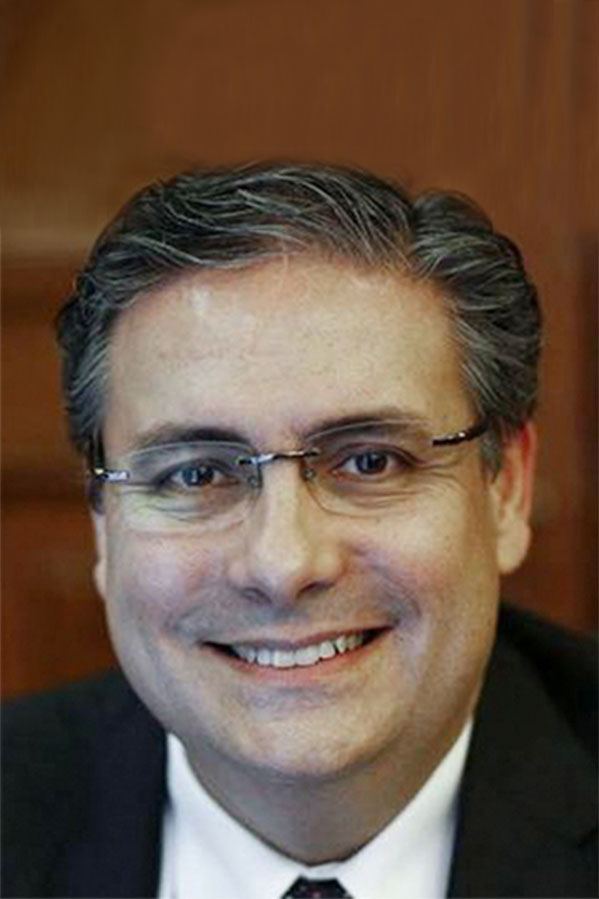Key Staff Member, University of Minho
Carlos Abreu Amorim
His expertise as Portuguese policy maker and his academic background on administrative and environmental law will provide added value on technological sustainability conceptualization and future democratic paths.
- Portuguese nationality
- camorim@direito.uminho.pt

Summary of relevant skills and experience
PhD in Public Law (UMinho, 2009). Professor (School of Law – UMinho, lecturing Environmental Law and Administrative Law, to the 1st and 2nd cycles of study, and University Lusófona of Porto, lecturing Constitutional Law and Administrative Law, to the 1st cycle of study). Member of the Directive Commission (Master´s Degree in Administrative Law, UMinho) and Founder (Master in Local Government Law, UMinho). Member of the Coordinating Commission of the Scientific Council of JusGov (https://www.jusgov.uminho.pt/center/governing-structure/). Member (National Parliament of Portugal, 2011-2019) having integrated the following Parliamentary Committees: i) Constitutional Affairs, Rights, Freedoms and Guarantees, ii) Environment, Spatial Planning and Local Government, iii) Strengthening of Transparency in the Exercise of Public Functions, iv) Monitoring the Measures of the Financial Assistance Program to Portugal, v) Commission for constitutional review. Vice-chairman of a parliamentary bench at the Portuguese Parliament (2011-2018), directing “Environmental policies, Justice and Internal Affairs”, and having been responsible for several legislative reforms: Local Government Reform (2013), Fundamental Environment Law (2014), Reform of the Judiciary (2014), National Enforcement Laws of the General Data Protection Regulation (2018). Effective member (Portuguese Commission on Access to Administrative Documents, 2017-2021) appointed by Portuguese Parliament.
Relevant publication to CitDig implementation
i) “The practicality of administrative responses in need in the context of the COVID-19 pandemic”, in UMinho in times of pandemic, Tomo III – Forecasting, 2020 (where author explores the advent of new challenges for public administration – as the need to fulfil the purposes of public interest in ways and forms different from the usual –, especially due to the sense of urgency that confinement has brought, hastened the application of digital means in the execution of administrative tasks and contributed to the digitization of public administration); ii) “Identifiable relatives in the family history: not without individual consent”, with José Nunes and Maria Faria, Porto Biomed, 2020 (where authors explain the GDPR and its Portuguese implementing law have mandatory rules on how personal data should be processed in research tasks in the field of medicine – but the data available in Portugal on scientific research, particularly in the field of medicine, show that these objectives have not yet been achieved); iii) “European Climate Law – real changes or postponed future?”, with Ana Cardoso, UNIO – EU Law Journal, Vol. 7, No. 1, July 2021 (where authors explain to what extent the Recovery Plan for Europe and the European Green Deal are united in their purposes and in their concrete action, and why is necessary to strengthen the European Climate Law as a key tool in the implementation of the EU environmental policy strategy).
Relevant teaching experience to CitDig
i) Environmental Law, lectured in Master of Administrative Law/Master of Human Rights/Master of EU Law, UMinho (summary: The emergence of the right of the environment in our contemporaneity; The environment is changing the law; Constitutional law of the environment; International and EU environmental law; EU Green Deal and EU Climate Law; Environment Law and Digital Europe Programme as Siamese twins in transforming the challenges of the future); ii) Constitutional Law, lectured to the 1st cycle of study in Law, University Lusófona of Porto (summary: Constitution and State; History of EU and Portuguese constitutionalism; Fundamental rights; The relevant constitutional principles in 21st century; The organs of sovereignty; The review of constitutionality; Checks and balances in Portuguese Constitution; The EU constitutionalism in the making).
 CitDig
CitDig